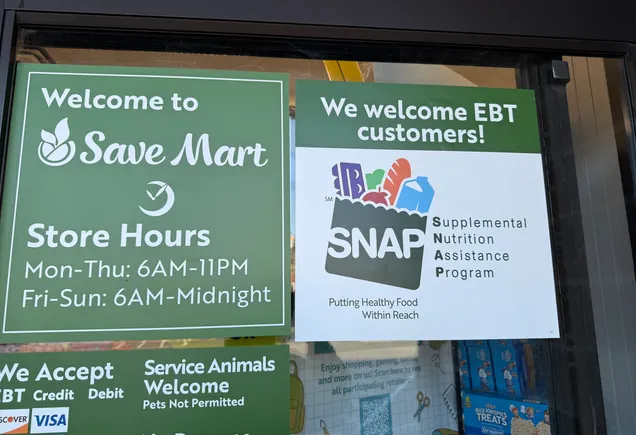Food and grocery industry organizations are urgently emphasizing the importance of SNAP as Congress deliberates significant spending cuts and some states move to restrict purchases.
Last week, the House Agriculture Committee approved legislation that could slash up to $300 billion in nutrition spending and revamp SNAP by mandating states to contribute to the program’s benefits, as reported by Politico. The House Budget Committee also passed a tax cut bill, paving the way for a House floor vote, as highlighted by Reuters.
Cuts to SNAP at the federal level are intended to fund the party’s domestic policy plan and certain farm bill programs, Politico pointed out. The House Agriculture Committee chairman argues that there are too many “work-ready” individuals on SNAP and advocates for stricter work requirements for program participants.
The proposed cuts coincide with states’ efforts to limit SNAP purchases of items like candy and soda, aligning with the “Make America Healthy Again” movement’s belief that benefits should not be used for unhealthy foods. Nebraska recently became the first state to receive federal approval to ban the purchase of soda and energy drinks under the program.
As of February, over 42 million people are enrolled in SNAP, a 2% increase from the previous year, according to the USDA. SNAP represents about 5% of all supermarket transactions, as highlighted by FMI – The Food Industry Association during a recent webinar. Retailers have expressed concerns about how reductions in SNAP funding can impact their sales.
FMI’s chief public policy officer and senior vice president, Jennifer Hatcher, stated during the webinar that SNAP enjoys broad support across the political spectrum. A survey conducted by Fabrizio, Lee & Associates and FMI revealed that 59% of respondents oppose cutting or reducing SNAP funding, while one-third are in favor.
Concerns have been raised by the National Grocers Association about the proposed cuts and changes to program costs in the legislation. NGA President and CEO Greg Ferrara emphasized that SNAP is vital in combating food insecurity and serves as an economic driver for local communities nationwide.
SNAP funding not only addresses food insecurity but also bolsters local economies, generating over $4.5 billion in state and federal tax revenue annually, according to Ferrara. The NGA has previously cited data showing that every $1 invested in SNAP yields $1.79 in economic activity within communities.
Ferrara urged Congress to pursue balanced reforms that strengthen SNAP, eliminate waste and fraud, and support American families’ health and economic well-being while preserving jobs in the food and grocery sector.
FMI advocates for federal oversight of SNAP to ensure consistency. Hatcher emphasized that implementing varying SNAP restrictions by state could lead to delays, errors, and disputes, hindering checkout processes and increasing operational costs.
Survey data from FMI showed that a majority of respondents support a single national standard on SNAP usage, underscoring the need for consistency in program guidelines.
To provide stakeholders with current information on SNAP policy discussions, FMI recently launched a new website, factsaboutsnap.org. The site offers survey data and serves as a resource for understanding ongoing SNAP debates.
Approximately 25 states are considering restrictions on specific items like candy and soda for SNAP participants this year. These policy changes necessitate USDA waivers, with Nebraska being the first state to receive approval, while others like Arkansas, Indiana, and Iowa have also submitted waiver requests.
FMI opposes limitations on how SNAP benefits are used, advocating for resources like dietitian-supported recipes and tailored shopping experiences instead. The association believes that divergent state policies could confuse both shoppers and retailers.
FMI’s president and CEO, Leslie G. Sarasin, emphasized that the future viability of the SNAP program is not just a policy matter but a moral and economic imperative.
Reporting contributed by Sarah Zimmerman and Peyton Bigora.

